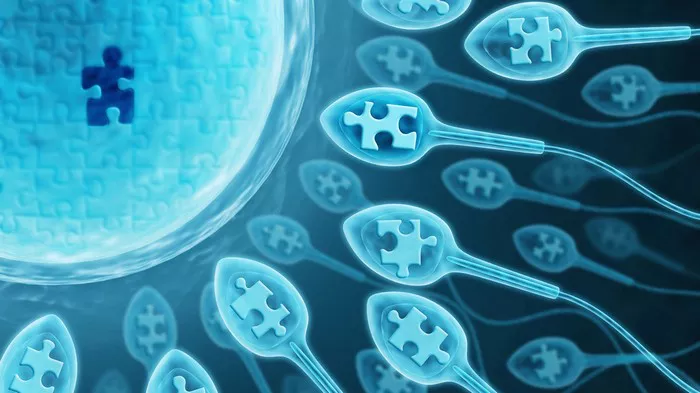Type 2 diabetes, a chronic condition that affects millions globally, is primarily known for its impact on blood sugar levels and metabolic health. However, its effects on reproductive health, especially in men, are often overlooked. Both male and female patients with type-2 diabetes can face fertility challenges due to hormonal imbalances, organ damage, and disruptions in metabolic processes. Understanding the connection between diabetes and infertility is crucial for those affected, enabling them to take proactive steps toward maintaining reproductive health.
In an interview with News9Live, Dr. Mahesh Koregol, a fertility specialist at Nova IVF Fertility in Bangalore, shed light on how type-2 diabetes affects male fertility, particularly sperm quality.
How Type-2 Diabetes Affects Male Fertility
Type-2 diabetes can negatively influence male fertility in several ways, including hormonal changes, reduced reproductive organ function, and poor overall metabolic health.
Impact on Sperm Quality
Men with type-2 diabetes often experience a decline in sperm quality, which can include:
Lower sperm count: A reduction in the number of sperm produced may directly affect a man’s ability to conceive naturally.
Reduced sperm motility: Poor sperm movement can impair the sperm’s ability to reach and fertilize the egg.
Abnormal sperm morphology: Sperm with irregular shapes are less likely to successfully fertilize an egg, further reducing the chances of conception.
These issues can severely limit the chances of natural conception.
Erectile Dysfunction and Decreased Testosterone
In addition to poor sperm quality, erectile dysfunction (ED) is another common problem for men with diabetes. The disease can damage blood vessels and nerves, impairing the ability to attain or maintain an erection. Furthermore, diabetes can lead to lower testosterone levels, which reduces libido and negatively impacts sperm production. The combination of these factors makes it more difficult for men with diabetes to conceive.
Sperm DNA Fragmentation
Diabetes can also cause sperm DNA fragmentation, which results in genetic damage to sperm cells. This damage can reduce the fertilization rate and increase the likelihood of miscarriage, making it even more challenging for couples to successfully conceive and carry a pregnancy to term.
Can You Reduce the Risk of Infertility Due to Diabetes?
While type-2 diabetes can complicate fertility, the good news is that effective management of the disease can significantly improve reproductive health outcomes. Here are some key strategies to reduce the risk of infertility:
1. Control Blood Sugar Levels
Maintaining optimal blood sugar levels is the cornerstone of managing type-2 diabetes and improving fertility. Consistently managing blood glucose through medication, diet, and exercise is essential for both men and women trying to conceive.
2. Healthy Diet and Exercise
A nutritious diet is critical for balancing insulin and hormones. Foods rich in fiber, lean proteins, healthy fats, and whole grains help regulate blood sugar levels and support reproductive health. Regular physical activity can enhance insulin sensitivity, manage weight, and improve overall fertility function.
3. Stress Management
Chronic stress can disrupt hormonal balance, impairing fertility. Techniques such as yoga, meditation, and deep breathing exercises can help manage stress and improve overall well-being, enhancing reproductive potential.
4. Avoid Toxins
Limiting exposure to harmful substances like tobacco and alcohol is crucial for preserving reproductive health. Both smoking and excessive alcohol consumption can have negative effects on fertility and should be minimized.
5. Medical Consultation
In cases where lifestyle changes aren’t enough to overcome fertility issues, it is advisable for couples to seek medical guidance. Fertility specialists may recommend treatments such as ovulation-inducing drugs for women or advanced sperm-enhancing procedures for men, such as sperm washing or IVF.
Conclusion
For men with type-2 diabetes who are trying to conceive, early intervention and lifestyle modifications can have a significant impact on fertility outcomes. By managing diabetes through proper diet, exercise, and medical care, men can improve their chances of successful conception and reduce the risk of complications during pregnancy. Collaboration with endocrinologists and fertility specialists can provide tailored strategies and treatment options, ultimately enhancing reproductive health and improving the chances of a healthy pregnancy.
Related topics:
Can a Woman with Multiple Fibroids Get Pregnant?
Is Calcified Fibroid Dangerous?
Catholic Bishops Express Opposition to Executive Order Expanding IVF Accessibility























